
Swiss make slow progress on Holocaust remembrance
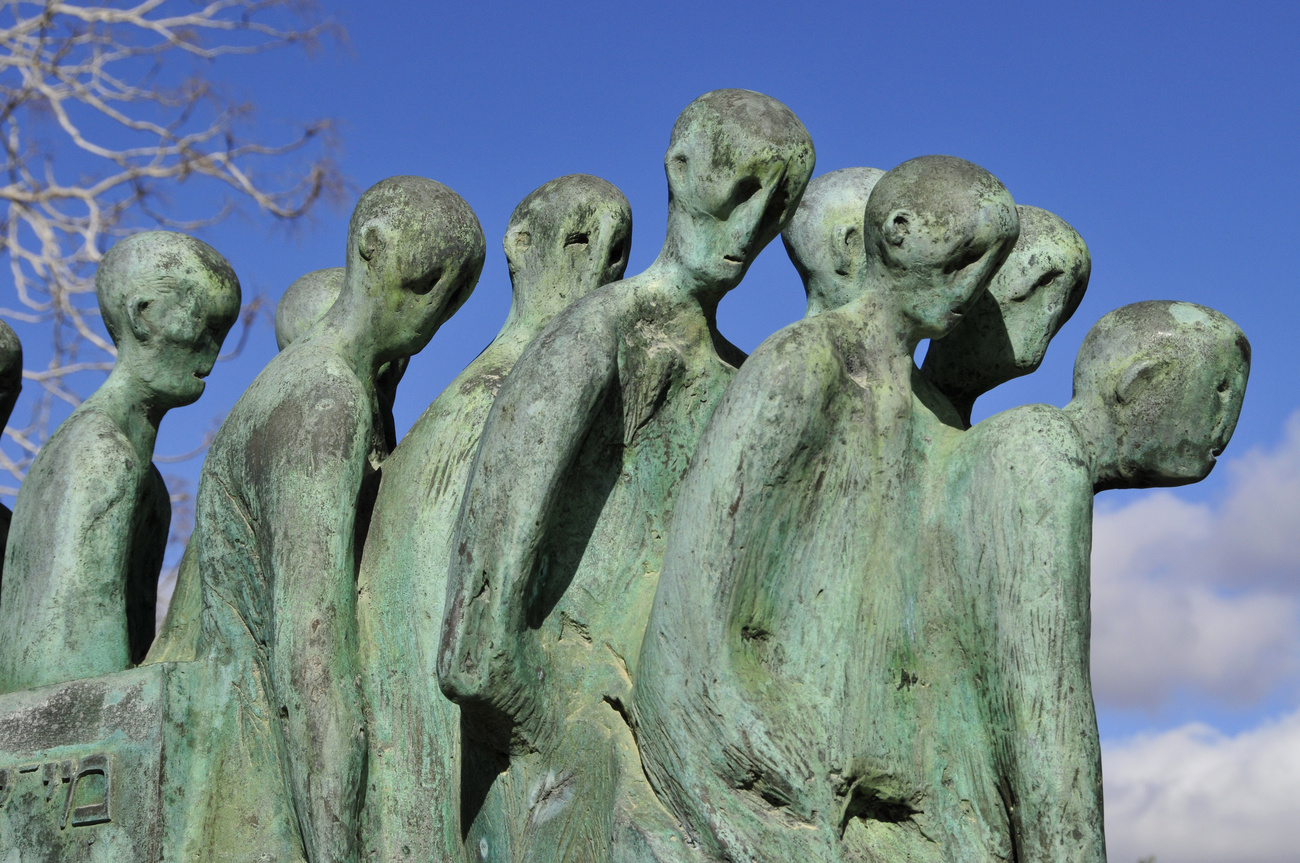
The call for Switzerland to have its own monument to the Holocaust, known as the Shoah in Hebrew, is gaining broad political support – even from the conservative right. That is a new development. Swiss commemoration policy was long a bone of contention between different political camps, only making slow progress since the 1990s.
In March the Swiss parliament approved plansExternal link to create a memorial for the victims of the Nazis during the Second World War. The memorial site will acknowledge the Swiss who fought against the Nazis and all those seeking protection who were turned away by Switzerland.
That represented a major breakthrough for a country that mooted the whole concept of a Shoah monument more than 25 years ago. Social Democrat parliamentarian and Council of Europe representative Andreas Gross proposed in parliament that the Swiss government make some acknowledgement of the Jewish refugees who were refused entry to the Alpine nation and thus abandoned to the genocidal machine of Nazi Germany.
The government of the day rejected the idea: the theme was too complex, they found, to be captured by a sculpture. Anyway it was a matter for the teaching of history and civics. The fact that other countries had commemorated Hitler’s destruction of the European Jews in this way, and that a call for proposals had just been issued for a Shoah monument in Berlin, was considered irrelevant. In Germany, it was said, there was to be “a commemoration of unthinkable human suffering that had taken place in full view of society”, which had not been the case in Switzerland.
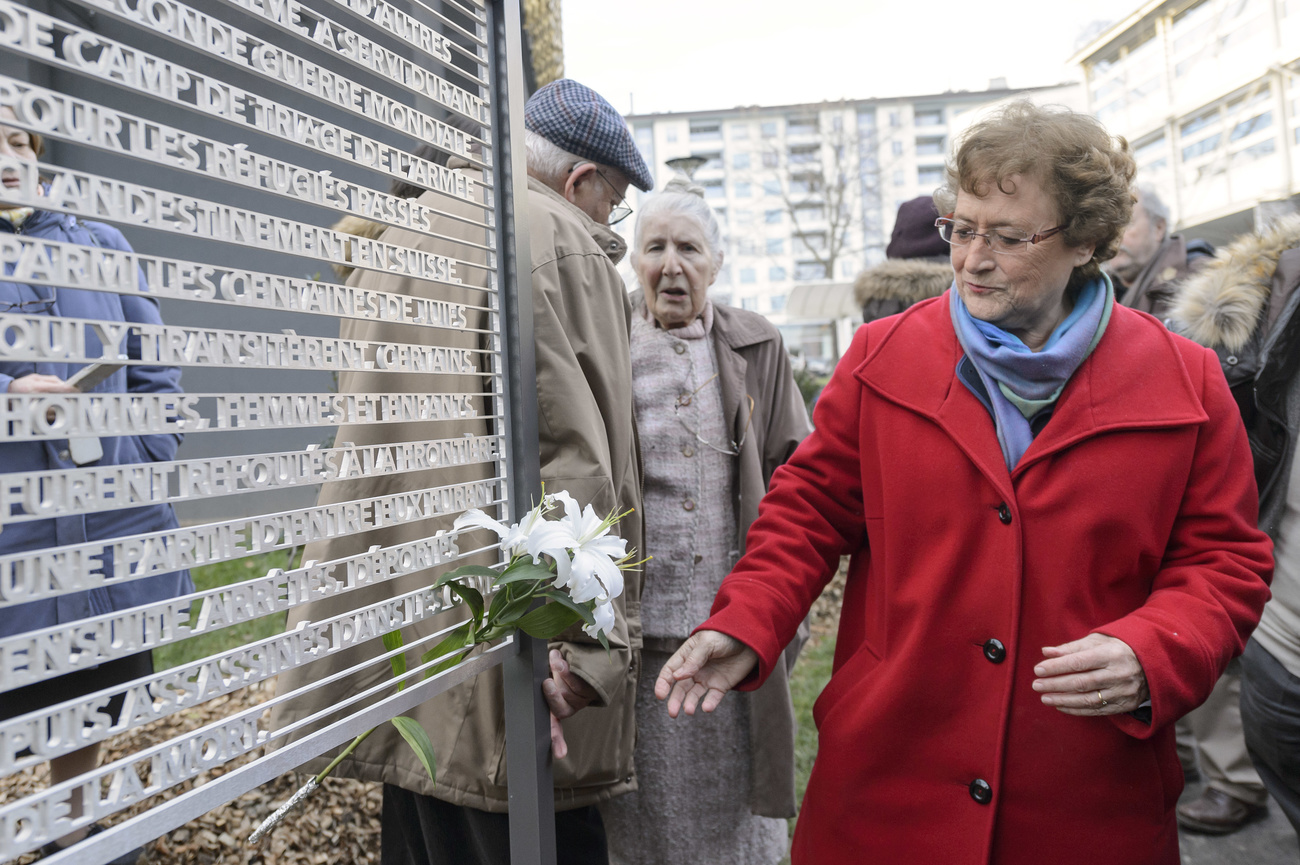
More
Proposal for an official Swiss Holocaust memorial gets a boost
The war itself had not been forgotten in Switzerland, however. In 1989 Switzerland was the only nation in Europe to commemorate the general mobilisation of its army and thus the outbreak of hostilities in 1939. The Swiss army and the government were able to look back with pride on the war years as a time of heroic defence of the nation’s territory.
Dormant accounts
Not long after, though, this positive self-image began to crack. In the 1990s descendants of Jews killed by the Nazis started demanding the release of funds which belonged to the victims and which were still in dormant Swiss bank accounts.
Economics Minister Jean-Pascal Delamuraz dismissed these demands as holding the country to ransom, and in late 1996 he could still tell an interviewer ironically: “Sometimes when I hear certain people talking, I start to wonder if Auschwitz was in Switzerland.”
Besides the controversy about the dormant accounts, Swiss refugee policy of the time began to be reexamined. What prompted this was a request from the Shoah documentation centre at Yad Vashem in Jerusalem for the names of Jews denied entry to Switzerland.
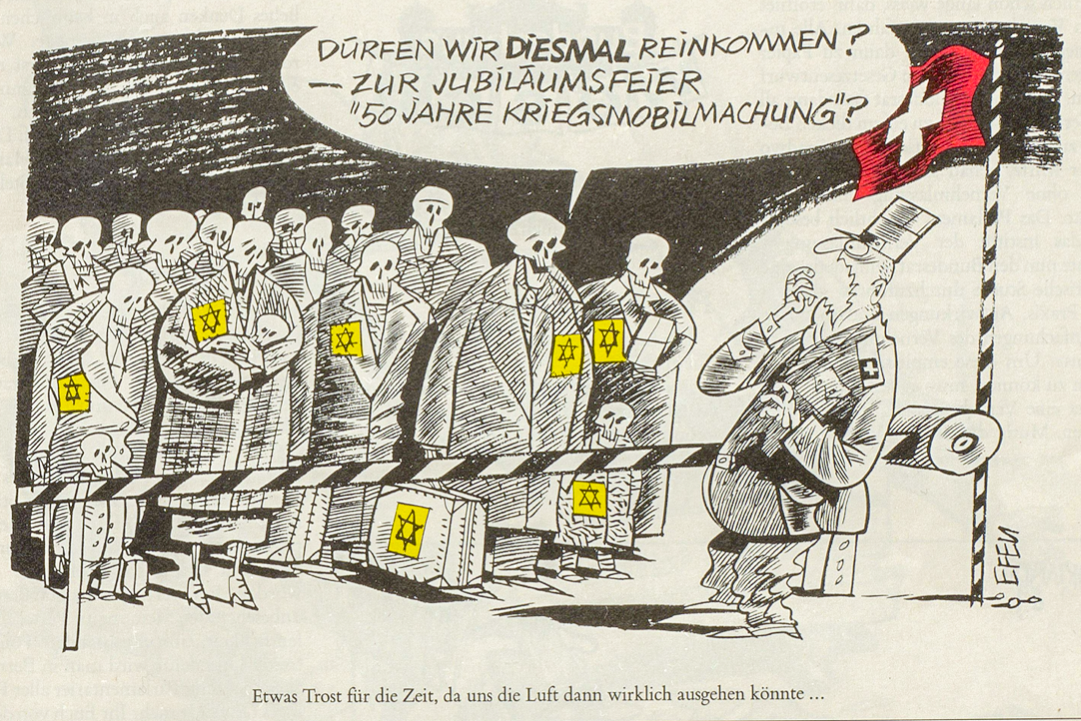
The pressure eventually forced Switzerland to assume its share of responsibility for what had gone on in wartime. One important step came at the end of 1995 when Kaspar Villiger, who held the rotating Swiss presidency that year, issued an unprecedented apology for the injustice done to Jews fleeing Hitler. He was apologising only for the “J stamp”, the identification of German Jews on their passports which Switzerland had cooperated with, as Villiger’s spokesman pointed out at the time. He was not apologising for Swiss asylum policy in general.
In December 1996 parliament finally referred the whole matter to an independent committee of experts led by historian Jean-François Bergier. They were to carry out a comprehensive review of Swiss finance, trade and asylum policies throughout the Second World War. The conclusions of the nine-member team were not welcomed by all. Some sections of the public and more conservative political parties dismissed the findings. They found them one-sided and negative, and they rejected the criticism that was implicit in those findings.
Looking back, it is apparent that Switzerland did not get on side with international commemoration of the Shoah until the turn of the millennium. Since 2004 Switzerland has joined others in commemorating January 27 as the date of the liberation of Auschwitz. Both the Council of Europe and the UN had decided on a day of remembrance, to discourage any future genocidal actions.
Switzerland has since joined several international organisations which have adopted a policy of Shoah commemoration, such as the International Holocaust Remembrance Alliance (IHRA). In 2020 the Swiss president, Simonetta Sommaruga, met survivors and attended a memorial event at Auschwitz.
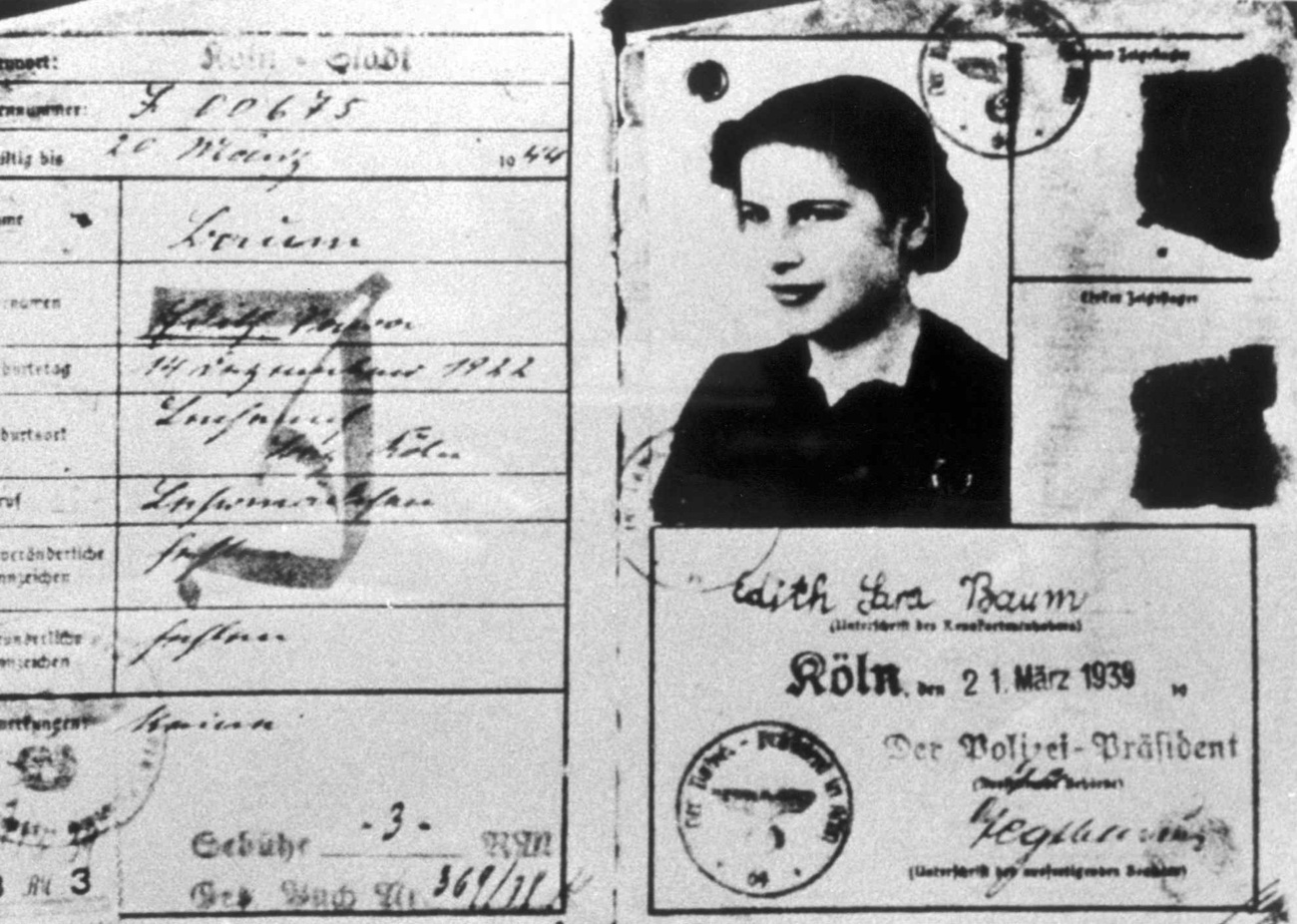
‘Refusal to mourn’
A monument, as proposed in 1995, still has not materialised. The past is now better remembered, but Switzerland has been slow to develop an official policy of commemoration. When a particular place of remembrance was called for in the House of Representatives in 1997, the government failed to pursue the matter. Historian Thomas Maissen spoke later of a “refusal to mourn”, and a member of the study commission, Jakob Tanner, spoke of a “wreck of a commemoration policy”.
Tanner, who supports the idea of a national Holocaust memorial, notes that even today there is no official memorial policy at federal level, as is the case in other countries. Here in decentralised Switzerland, monuments and commemorations are a matter for private citizens, associations and local governments.
In fact, the questioning of Switzerland’s wartime role led to a few local initiatives in the 1990s. Until then, any memorials were to be found in Jewish cemeteries. A few political figures, local governments and representatives of civil society came forward in an effort to commemorate victims of the Shoah – or Swiss who tried to help them, such as Paul Grüninger, who was officially rehabilitated by the government in 1994.
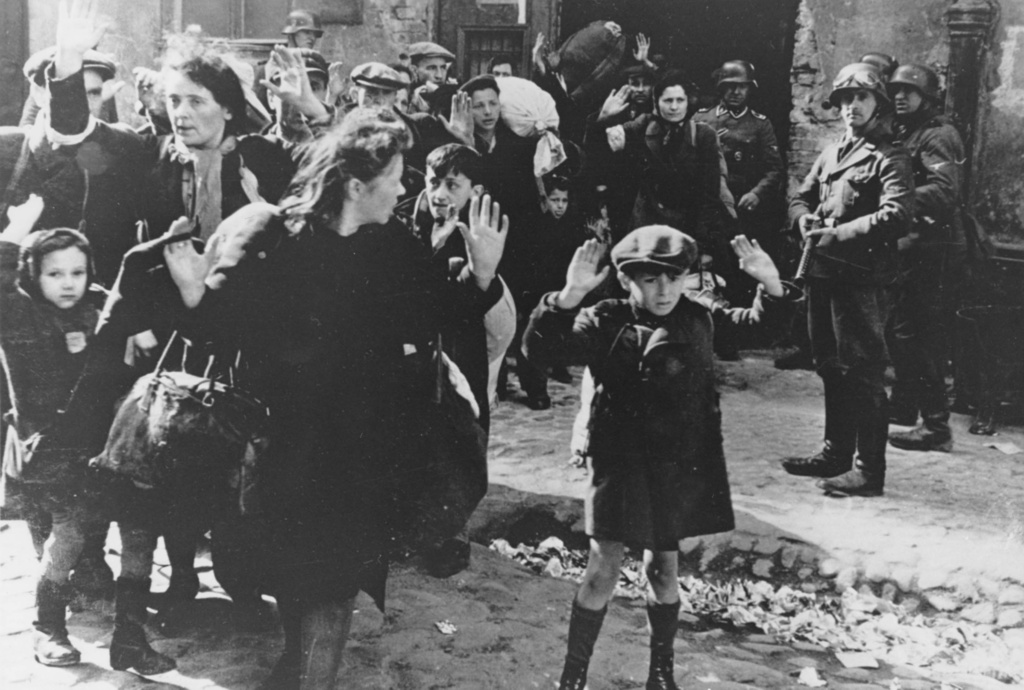
More
Swiss acknowledge wartime “heroes”
Most of these memorials are largely unknown to the public. The sculpture “Shoah” by Solothurn artist Schang Hutter attracted more attention. In 1998 he deposited it in front of the doors of parliament in Bern as part of the celebrations to mark the 200th anniversary of the revolutionary first Helvetic Republic. Critics at home and abroad called the work, a cube of rusting steel, “a naive attempt at commonplace sculpture”, which did not do the topic justice. They dismissed Hutter as a “self-appointed prophet” who had no right to put up a monument to a persecuted people on his own initiative.
The controversy came to an abrupt end when members of the extreme right-wing Freedom Party (today known as the Automobile Party) illegally removed the “heap of junk” (as they called it) after a few days and sent it back to the artist. The sculpture then went on a kind of tour of Switzerland. For a few weeks it was seen on the Paradeplatz in Zurich. Social Democrat politician Paul Rechsteiner applauded Hutter’s attempt at a monument. He said it was a welcome contrast to “the attempt to smoothe over the most difficult chapter in this country’s history, in accordance with official preference”.
Currently in Switzerland there are 54 monuments connected with the Shoah. These are not large-scale installations, but small local monuments or artefacts of some sort. There are also now ten “Stolpersteine” or “stumbling stones” in memory of particular victims of Nazism. This form of commemoration, which has spread across Europe, came to Switzerland in 2013 and is being sponsored by an association.
Remembering and forgetting
The two latest parliamentary motions seem likely to lead to a national Shoah monument. The broad base of support goes to show that over the past 15 years Switzerland has become less defensive about its wartime role.
Support has come from Alfred Heer, a prominent politician in the right-wing Swiss People’s Party, which roundly criticised the Bergier commission.
This belated non-partisan show of unity is a reminder, however, of the caution that has been expressed by American Jewish scholar James E. Young, who specialises in Shoah memorials. Major national monuments tend to be the outcome of protracted debates and then serve to “turn the page”, he points out. They enable people to forget rather than remember. The danger of general amnesia is all the more likely, given that soon there will be no survivors left who could give an eye-witness account of what the Nazis actually did.

More
Gábor Hirsch, one of the last great witnesses of the Shoah
To this extent, the approach being put before the Swiss government is a welcome development for the country’s Jewish community. The intention is that the monument itself be accompanied by a documentation centre and educational activities, with a view to countering racism and anti-Semitism today and tomorrow.
Edited by David Eugster, translated from German by Terence MacNamee
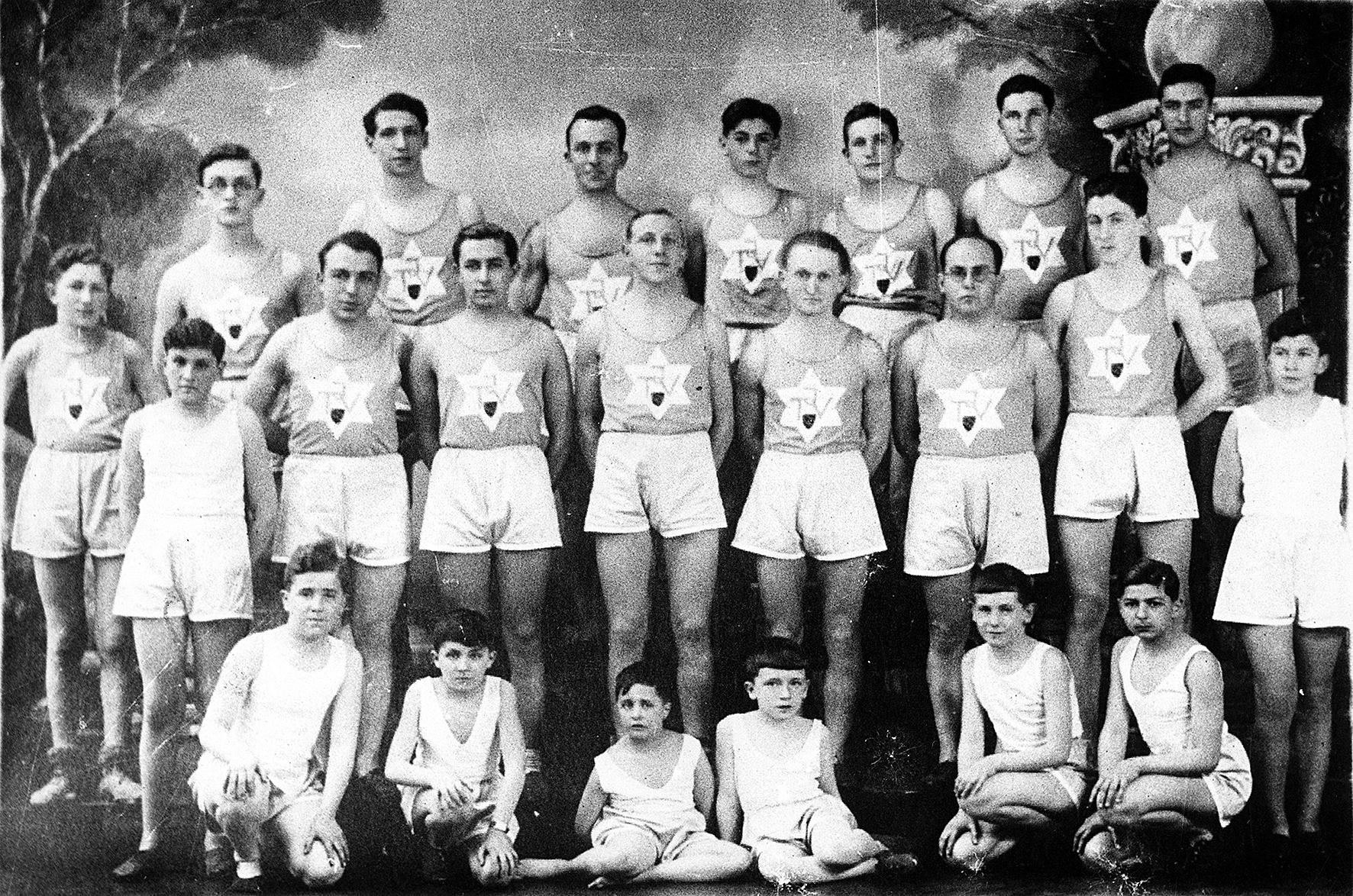
More
When Swiss voters gave rights to Jews

In compliance with the JTI standards
More: SWI swissinfo.ch certified by the Journalism Trust Initiative


























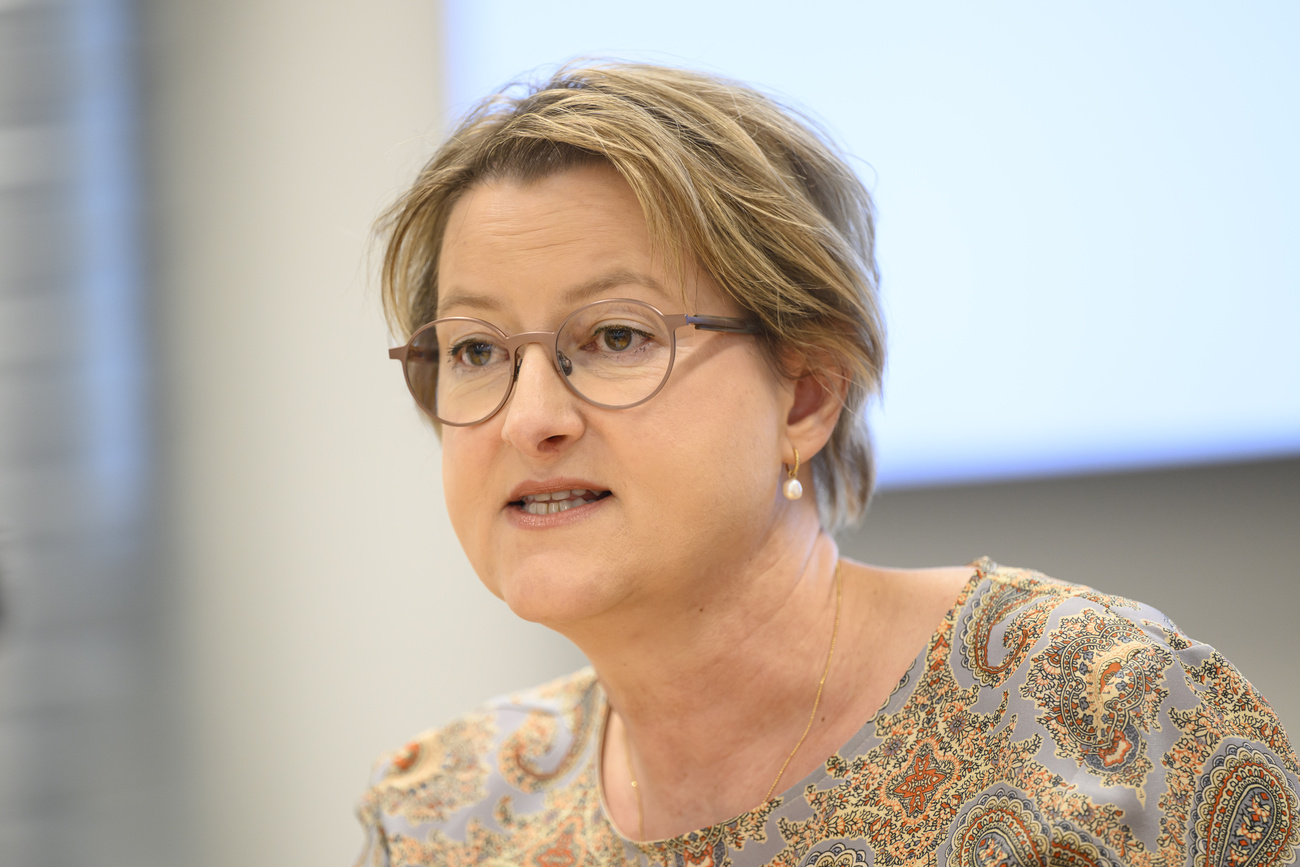



You can find an overview of ongoing debates with our journalists here . Please join us!
If you want to start a conversation about a topic raised in this article or want to report factual errors, email us at english@swissinfo.ch.